Can we “know” what God wants?
His last days were filled with great suffering, played out publicly on social media and in the national news from March until his death on May 19th. Here are the descriptions of the patient’s condition in the last weeks of life:
- April 26th, GoFundMe post: “He has now lost 80 pounds and subsequently continues to struggle with extreme weakness.… He’s on strong IV antibiotics three times a day.… He has intermittently also suffered [from] kidney issues and [has] been on dialysis. In addition to this, he is having heart and lung concerns, sores from being in bed for 4 months and depression.”
- April 30th, Facebook post: “He was admitted to the hospital tonight with acute kidney failure and dehydration.”
- May 9th, Facebook post: “He will be having emergency surgery tomorrow. Still in ICU fighting the infection and organ failure.”
Later, his wife refused to withdraw life support, claiming on Facebook, “He’s a fighter, and his will is strong even if his body isn’t. God is our hope.”
What does God want in a VERY serious illness?
 Can we know what God wants? I was drawn to this story reading the pleas for people of faith to pray for a miracle when one could read between the lines and understand that this man was dying.
Can we know what God wants? I was drawn to this story reading the pleas for people of faith to pray for a miracle when one could read between the lines and understand that this man was dying.
Let me be clear: If I were the chaplain in this story, I would approach this patient and his family compassionately and without judgment. As their chaplain, my role would be to meet this family where they are, not where I want them to be.
But I was not their chaplain and now have the luxury of pondering this situation from afar after it ended.
Is God ONLY for saving a life?
I find many things curious about the language and theology expressed publicly.
- Let’s start with an earlier GoFundMe post from March: “He coded, but God decided that it was not his time to go and brought him back to us.” Evidently, the patient’s heart failed, yet he continued to live after the intervention of CPR.
 The family saw this as a sign of God’s intervention. The skeptic might say, “God did not decide the patient should not die during that code. Human intervention went against what seemed to be God’s plan.”
The family saw this as a sign of God’s intervention. The skeptic might say, “God did not decide the patient should not die during that code. Human intervention went against what seemed to be God’s plan.”
Who am I to say God did or did not intervene? I stopped speaking for God years ago.
I believe it is a slippery slope to claim that God is saving the life of someone in multiple system failure when the death expectancy rate for all of us is 100%.
Perhaps “God called him home?” Acceptance or crisis of faith?
There is another way people of faith might approach such circumstances. Other families I have ministered to chose to forgo heroic medical interventions. When the patient died, they said, “God called them home.”
I am guessing that this patient’s wife probably accepted “God’s timing” when her husband finally died. I hope that is true. People who feel God is in control of everything can often shift to acceptance when death eventually occurs.
But for some who expect a miracle, death can cause a crisis of faith. I wrote about this in a previous blog, “God has a lot of explaining to do.”
What is keeping this patient alive? The machines or God?
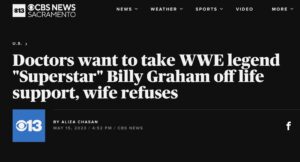 May 7th, Update! “The doctors are continuing to try and prepare me for the worst. And I continue to explain to them that [we] are people of faith and that our God has the final say. I am not in denial about what’s happening to him or blind to what the medical reports say…. I just know that the God I serve is greater than any infection and more powerful than any organ failure.”
May 7th, Update! “The doctors are continuing to try and prepare me for the worst. And I continue to explain to them that [we] are people of faith and that our God has the final say. I am not in denial about what’s happening to him or blind to what the medical reports say…. I just know that the God I serve is greater than any infection and more powerful than any organ failure.”
There would have been a time long ago when death was not optional. Antibiotics and other medical interventions can now cure many who would have died in another time and place.
These same modern medical treatments can also prolong the dying process, sometimes at the cost of great pain and suffering for the patient.
Other hopes besides “not dying”
I try to help families see that there are other outcomes to hope for other than “not dying.” Having a peaceful death, being pain-free, or spending quality time with family. This is what I did with the man who told me, “God has told me my wife is not going to die.”
I don’t know how the end came for this man. I only saw the announcement of his death and an obituary in the New York Times, after which the Facebook and GoFundMe pages went silent.
Hopefully, all involved, living and dead, are now at peace.
[Cover photo by Richard Catabay on Unsplash]
_________________________
Chaplain Hank Dunn is the author of Hard Choices for Loving People: CPR, Feeding Tubes, Palliative Care, Comfort Measures and the Patient with a Serious Illness and Light in the Shadows. Together they have sold over 4 million copies. You can purchase his books at hankdunn.com or on Amazon.

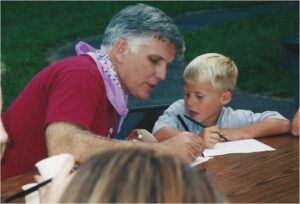
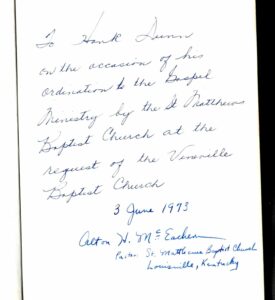
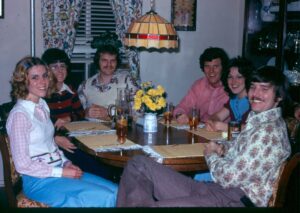
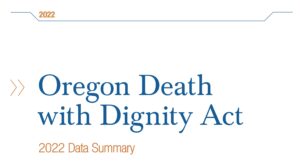 As I have done for the last 25 years, I quickly opened the most recent annual
As I have done for the last 25 years, I quickly opened the most recent annual 
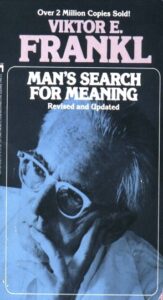 “If there is a meaning in life at all, then there must be a meaning in suffering. Suffering is an ineradicable part of life, even as fate and death. Without suffering and death human life cannot be complete.… Suffering ceases to be suffering at the moment it finds a meaning, such as the meaning of a sacrifice.” Viktor E. Frankl (1905-1997) Holocaust survivor and author of Man’s Search for Meaning
“If there is a meaning in life at all, then there must be a meaning in suffering. Suffering is an ineradicable part of life, even as fate and death. Without suffering and death human life cannot be complete.… Suffering ceases to be suffering at the moment it finds a meaning, such as the meaning of a sacrifice.” Viktor E. Frankl (1905-1997) Holocaust survivor and author of Man’s Search for Meaning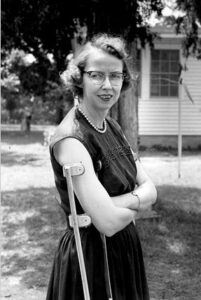

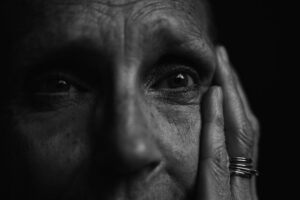

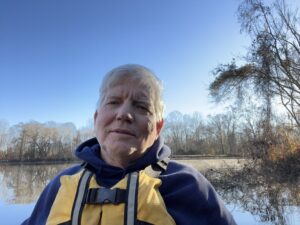



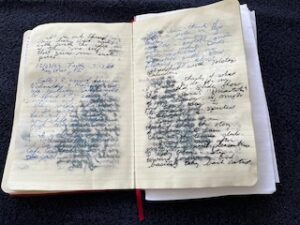
 For a situation in which you have no control: “No problem, there is nothing you can do about it.” For a situation in which you CAN do something about it: “No problem, take steps to figure it out.”
For a situation in which you have no control: “No problem, there is nothing you can do about it.” For a situation in which you CAN do something about it: “No problem, take steps to figure it out.” Update our advance directives. I wrote a blog recently about
Update our advance directives. I wrote a blog recently about 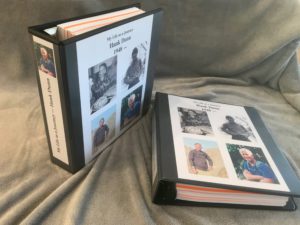 Continue to gather my “memoir” for my kids and grands. I wrote a
Continue to gather my “memoir” for my kids and grands. I wrote a 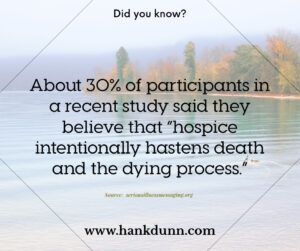 I posted a
I posted a 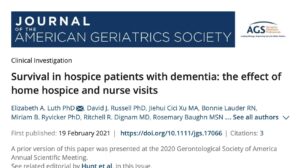 It makes no sense that hospice would want to hasten a patient’s death. The more days the patient is on hospice, the more reimbursement the hospice receives. It is totally against their financial interest to hasten death.
It makes no sense that hospice would want to hasten a patient’s death. The more days the patient is on hospice, the more reimbursement the hospice receives. It is totally against their financial interest to hasten death.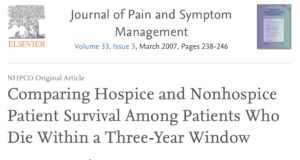 Many studies confirm that hospice patients live longer than nonhospice patients suffering from the same disease.
Many studies confirm that hospice patients live longer than nonhospice patients suffering from the same disease.  Rosemary Bowen, at 94, was living independently. She said she had had a wonderful life and did not look forward to a long, slow decline toward death. For years, she had been telling her children, “That her life would not be worth living if she had to depend on caretakers to feed her, dress her, and take her to the toilet.” Then, it happened. She fractured her back and went to rehab but was unable to live independently. That was enough for her.
Rosemary Bowen, at 94, was living independently. She said she had had a wonderful life and did not look forward to a long, slow decline toward death. For years, she had been telling her children, “That her life would not be worth living if she had to depend on caretakers to feed her, dress her, and take her to the toilet.” Then, it happened. She fractured her back and went to rehab but was unable to live independently. That was enough for her.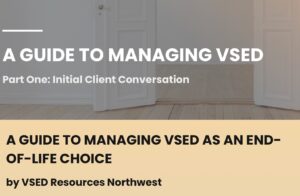 Do not try this without medical support. Rosemary was able to get a hospice to care for her in her last days. Palliative care is also available to ease burdensome symptoms like pain and thirst. See
Do not try this without medical support. Rosemary was able to get a hospice to care for her in her last days. Palliative care is also available to ease burdensome symptoms like pain and thirst. See 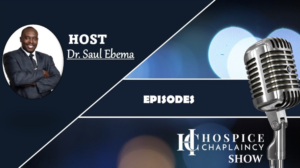
 “There is a difference between a happy life and in living a meaningful life.… Living a meaningful life has to do with being a giver.… If you want to find meaning in your life you have to begin reaching out.… Happiness and unhappiness does not predict suicide but living a life without meaning does.”
“There is a difference between a happy life and in living a meaningful life.… Living a meaningful life has to do with being a giver.… If you want to find meaning in your life you have to begin reaching out.… Happiness and unhappiness does not predict suicide but living a life without meaning does.”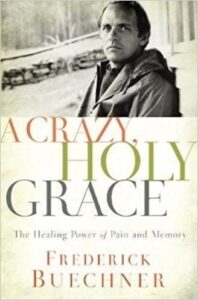 “Believing in him is not the same as believing things about him such as that he was born of a virgin and raised Lazarus from the dead. Instead, it is a matter of giving our hearts to him, of come hell or high water putting our money on him, the way a child believes in a mother or a father, the way a mother or a father believes in a child.”
“Believing in him is not the same as believing things about him such as that he was born of a virgin and raised Lazarus from the dead. Instead, it is a matter of giving our hearts to him, of come hell or high water putting our money on him, the way a child believes in a mother or a father, the way a mother or a father believes in a child.”